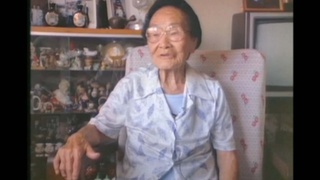Interviews
Boarding house life and the Issei (Japanese)
(Japanese) When I was learning gardening and working as a gardener’s helper at the boarding house, I came to know a lot of Issei. These were men who had never been able to get married and lived out their whole life single. And then there were people who crossed the border from Mexico, so-called…what do people call them now…wetbacks. There were also Issei who had lost their wives and moved in with their sons but ended up leaving and going to the boarding house because they didn’t get along with their sons’ Nisei wives. I was lucky to be able to meet so many Issei in the later years of their lives and hear their individual stories. There were indications about what Nikkei society was like at the time and how it would change from then on. For me, school in America was at the boarding house, listening to the stories of the Issei.
Date: January 31, 2012
Location: California, US
Interviewer: John Esaki, Yoko Nishimura
Contributed by: Watase Media Arts Center, Japanese American National Museum









